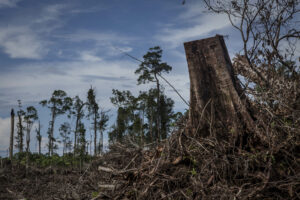How Human Actions Drive Pandemics: The Role of Climate Change and Biodiversity
 The increasing frequency of pandemics has been linked to disruptions in the planet’s ecosystems caused by human activities. Infectious diseases, which have historically caused widespread devastation, are now emerging more often, raising concerns among experts about the underlying causes of this trend. Despite scientific advancements, such as vaccinations and antibiotics, that initially seemed to curb outbreaks, diseases like HIV/AIDS, SARS, and COVID-19 continue to present challenges.
The increasing frequency of pandemics has been linked to disruptions in the planet’s ecosystems caused by human activities. Infectious diseases, which have historically caused widespread devastation, are now emerging more often, raising concerns among experts about the underlying causes of this trend. Despite scientific advancements, such as vaccinations and antibiotics, that initially seemed to curb outbreaks, diseases like HIV/AIDS, SARS, and COVID-19 continue to present challenges.
Ecosystem Disruption and Its Impact
A study by researchers at the University of Adelaide highlights the critical role of ecosystem disruption in the emergence of pandemics. Healthy ecosystems help regulate diseases by maintaining natural balances, such as predator-prey relationships and plant growth. However, human actions like deforestation, climate change, and biodiversity loss have disrupted these balances, making it easier for pathogens to spread. For example, climate change has enabled disease-carrying mosquitoes to expand into new regions that were previously temperate.
Biodiversity Loss and Pathogen Spread
Reports have shown that the loss of biodiversity has created conditions where pathogens can move from animals to humans more easily. One notable case involves vampire bats in South America, where deforestation and agricultural expansion created new feeding grounds, facilitating the spread of rabies. Similarly, the HIV virus emerged from the hunting of apes for food and eventually spread worldwide. These examples illustrate the connection between human activity and the rise of zoonotic diseases.
The Significance of Planetary Health
Experts are advocating for a “planetary health” approach, which emphasizes the interconnectedness of human health and the natural environment. This approach seeks to address foundational issues like climate change while also tackling immediate concerns such as wildlife-human interactions. Educational institutions are increasingly incorporating planetary health into their curricula to prepare future leaders with the knowledge and tools to mitigate pandemic risks effectively.
It is widely accepted that without addressing the underlying causes, the risk of future pandemics will remain high. Efforts to strike a balance between human development and ecological preservation are considered crucial for protecting global health.








